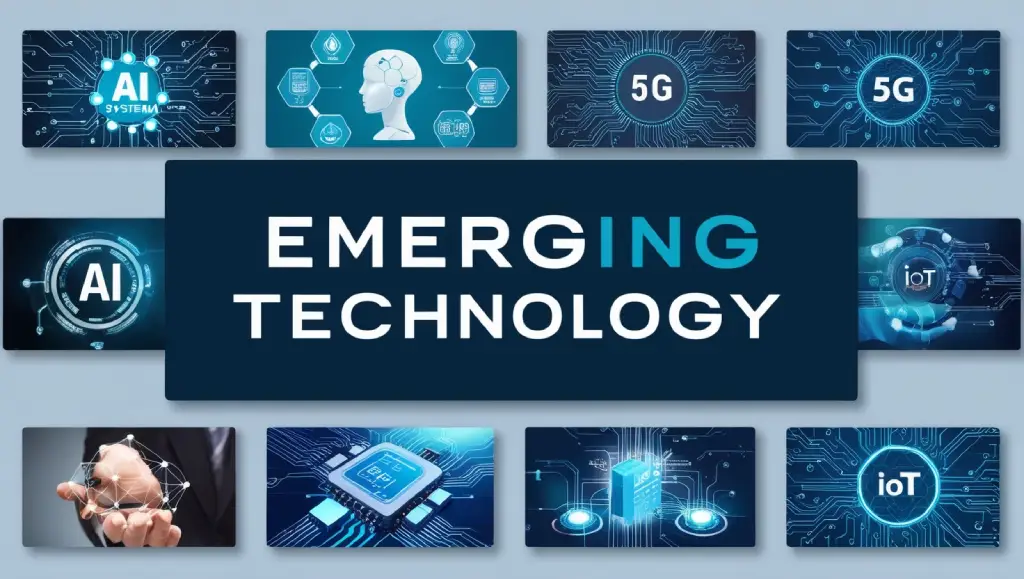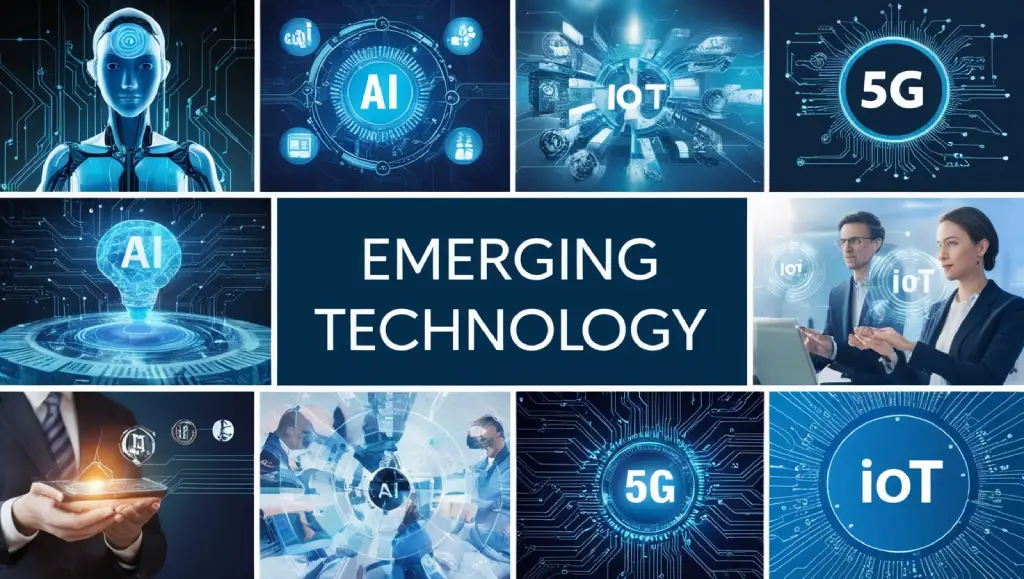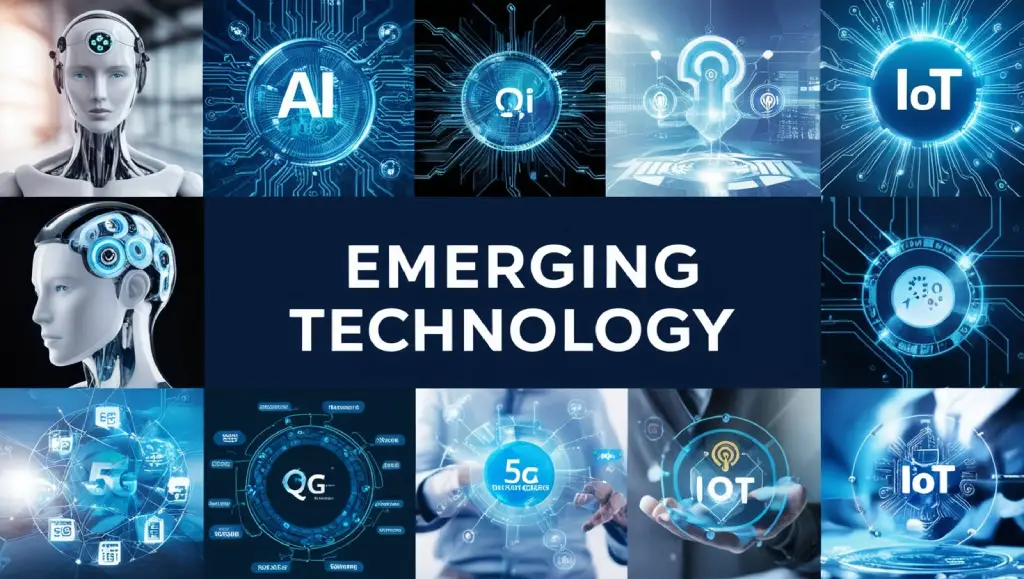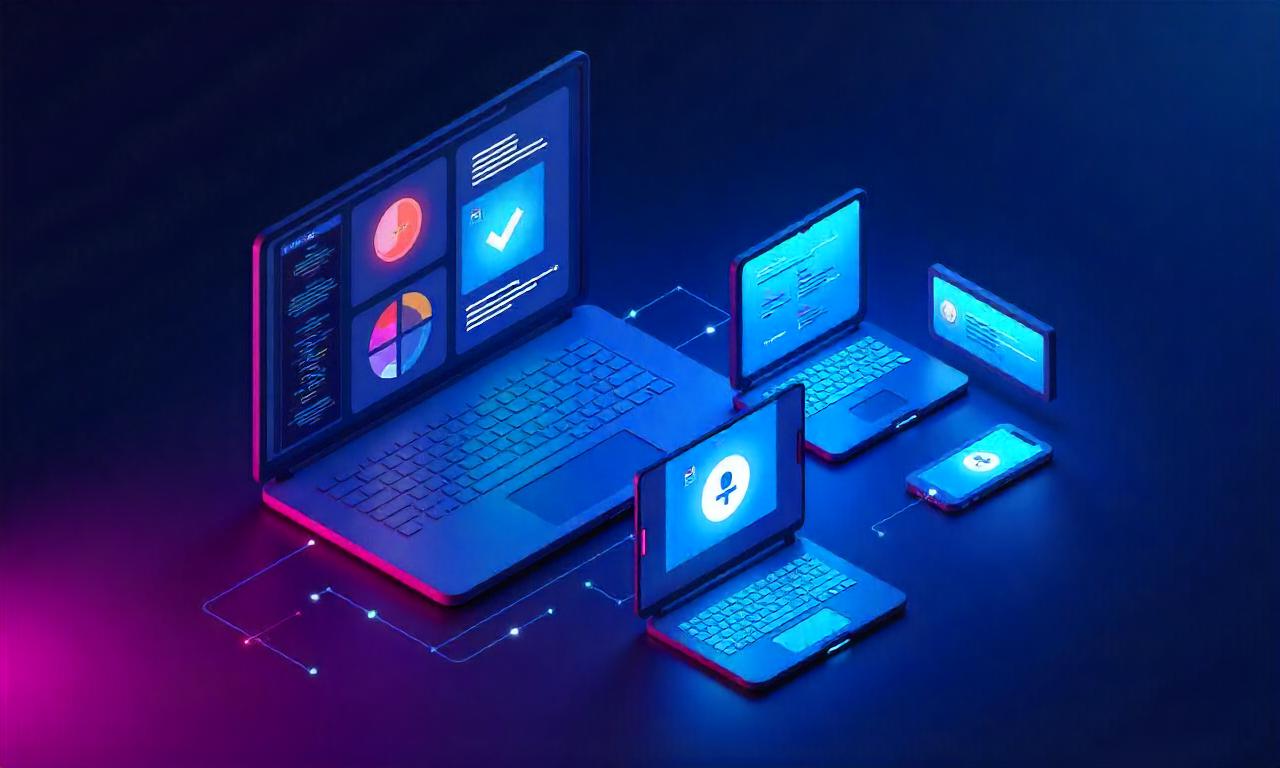Discover the future of emerging technology with trends in AI, IoT, and biotechnology, transforming industries and reshaping our everyday lives.
Emerging technology is reshaping the world faster than ever. From AI making decisions in real-time to biotechnology altering the way we approach healthcare, these advancements are changing every aspect of how we live, work, and connect.
Whether you’re curious about the latest trends or looking to understand how these technologies impact your day-to-day life, this guide will break down the essentials in an easy-to-understand, casual style.
Table of Contents
ToggleEmerging Technology Trends

1. Artificial Intelligence (AI)
Artificial Intelligence (AI) has moved from a futuristic concept to a cornerstone of modern technology. AI systems, from chatbots to complex data analytics, now power industries across the globe. AI’s ability to learn and adapt is creating systems that can think, predict, and react like never before.
How Does AI Work?
AI systems are designed to process massive data sets, recognize patterns, and make decisions based on learned behavior. AI includes various types, such as:
- Narrow AI: Focused on specific tasks (e.g., facial recognition).
- General AI: Hypothetical systems capable of thinking like humans.
Key Applications of AI
- Healthcare: Predictive analytics for patient care.
- Finance: Fraud detection and automated trading.
- Retail: Personalized shopping experiences and inventory management.
2. Machine Learning (ML)
Machine Learning (ML) is a subset of AI focused on allowing systems to “learn” from data without being explicitly programmed. ML algorithms improve with more data, making it possible for industries to automate tasks and extract valuable insights.
Types of Machine Learning
- Supervised Learning: Trains on labeled data.
- Unsupervised Learning: Identifies patterns in unlabeled data.
- Reinforcement Learning: Learns through trial and error.
Machine Learning in Action
- Recommendation Engines: Used by streaming services to personalize content.
- Predictive Maintenance: Identifies equipment that needs servicing in advance.
3. Quantum Computing
Quantum computing stands on the frontier of computational advancements, promising processing speeds unachievable by classical computers.
By harnessing the power of quantum bits (qubits), quantum computers tackle problems too complex for conventional systems.
How Does Quantum Computing Work?
Quantum computers operate on principles of quantum mechanics, such as superposition and entanglement, allowing them to process vast amounts of data simultaneously.
Practical Applications
- Cryptography: Enhancing data encryption.
- Drug Discovery: Simulating complex molecular structures.
- Financial Modeling: Running high-speed simulations for market predictions.
4. Extended Reality (XR): AR, VR, and MR Merging the Virtual with the Real
Extended Reality (XR) covers Augmented Reality (AR), Virtual Reality (VR), and Mixed Reality (MR), blending virtual environments with the physical world. XR is creating new dimensions for entertainment, education, and work.
Key Differences
- AR: Overlays digital information on the real world.
- VR: Creates an entirely immersive digital environment.
- MR: Merges real and virtual worlds for interaction.
How XR is Changing Industries
- Education: Virtual classrooms and simulations.
- Retail: Try-before-you-buy experiences.
- Healthcare: VR for therapy and training.
5. Blockchain Beyond Cryptocurrency
Blockchain technology, initially known for supporting cryptocurrencies, is now applied in numerous industries for its ability to secure data transparently. A decentralized and immutable ledger system, blockchain holds promise for various sectors beyond finance.
Uses of Blockchain
- Supply Chain: Tracking product origins.
- Healthcare: Securing patient data.
- Voting: Preventing electoral fraud with transparent records.
6. 5G and the Rise of IoT (Internet of Things)
The rollout of 5G technology is transforming connectivity, enabling faster speeds and more stable connections. Alongside, the Internet of Things (IoT) is growing, with interconnected devices communicating in real-time, enhancing efficiency across industries.
Impact of 5G and IoT
- Smart Cities: Real-time monitoring of traffic and utilities.
- Healthcare: Remote monitoring of patients.
- Agriculture: Automated irrigation and crop monitoring.
7. Edge Computing
Edge computing brings data processing closer to where it’s generated, reducing latency and enhancing efficiency. This is essential for IoT devices, where immediate data processing is required.
Edge Computing in Use
- Manufacturing: Real-time quality control.
- Telecommunications: Improved service delivery.
- Autonomous Vehicles: Real-time navigation and obstacle detection.
8. Cybersecurity Innovations
As cyber threats evolve, cybersecurity measures are advancing. Emerging technology in cybersecurity uses AI and machine learning to predict, detect, and mitigate threats before they cause harm.
Cybersecurity Trends
- AI in Cybersecurity: Identifying patterns of cyber attacks.
- Biometric Security: Fingerprint and facial recognition.
- Blockchain Security: Decentralized security solutions.
9. Digital Twins
Digital twins are virtual models that replicate physical assets, processes, or systems. By simulating real-world conditions, digital twins allow for advanced monitoring and decision-making.
Benefits of Digital Twins
- Predictive Maintenance: Identifying potential failures.
- Urban Planning: Modeling traffic flow and infrastructure needs.
- Manufacturing: Streamlining production processes.
10. Biotechnology and Genetic Engineering
Biotechnology uses biological processes to solve problems, while genetic engineering manipulates DNA for improvements in health, agriculture, and industry.
Advances in Biotechnology
- Gene Therapy: Correcting genetic disorders.
- Agricultural Biotechnology: Developing pest-resistant crops.
- Biomanufacturing: Producing bio-based materials.
11. Autonomous Systems
Autonomous systems, like self-driving cars and drones, are revolutionizing transportation and logistics. These systems use AI and ML to make decisions without human intervention.
Autonomous Systems in Action
- Transportation: Self-driving cars for safer roads.
- Agriculture: Drones for crop monitoring.
- Healthcare: Automated surgery and diagnostics.
Insights from VPNPieces.com

At VPNPieces.com, we see emerging technology as both an opportunity and a challenge. With each new advancement, there’s potential for improved efficiency and connectivity, but also heightened risks around privacy, security, and data management.
As these technologies continue to unfold, maintaining a secure digital environment becomes crucial, especially with trends like AI, IoT, and 5G transforming the online landscape.
For example, AI and machine learning provide immense potential for predictive analysis and automation, yet they also introduce complexities around data usage and personal privacy.
Our focus at VPNPieces.com is to provide readers with resources and guidance on how to safeguard personal data in an era where interconnected devices and data collection are the norms. We believe that users have a right to privacy, and our mission is to help them stay informed and protected.
Similarly, with the rise of 5G and IoT, the future promises more seamless communication across devices and faster data sharing.
While this connectivity is exciting, it also requires a secure network to protect against unauthorized access and data breaches.
At VPNPieces.com, we offer insights into how users can secure their devices and take advantage of emerging tech without compromising on safety.
Our stance is simple: as emerging technology reshapes industries and lifestyles, our role is to keep you informed, secure, and confident.
Through comprehensive articles, VPN recommendations, and practical guides, we aim to be your partner in navigating the ever-evolving tech landscape.
Conclusion
Emerging technology continues to transform industries and redefine possibilities. As AI, 5G, blockchain, and biotechnology evolve, the future of work, healthcare, and everyday life is set to become faster, safer, and more innovative.
To stay ahead of the curve and learn more about the transformative power of these technologies, visit vpnpieces.com, your trusted source for insights on technology and beyond.
FAQs about Emerging Technology
1. What is emerging technology?
Emerging technology refers to new, innovative tech that significantly impacts society, such as AI, 5G, and quantum computing.
2. Why is emerging technology important?
Emerging technology drives efficiency, improves quality of life, and offers solutions to complex problems across industries.
3. How is AI part of emerging technology?
AI enables computers to make decisions based on data, aiding automation, analytics, and personalized experiences.
4. What’s the difference between AR and VR in XR technology?
AR enhances reality with digital overlays, while VR creates an entirely virtual environment.
5. Can blockchain be used outside cryptocurrency?
Yes, blockchain is used in supply chains, healthcare, and voting due to its transparency and security.















